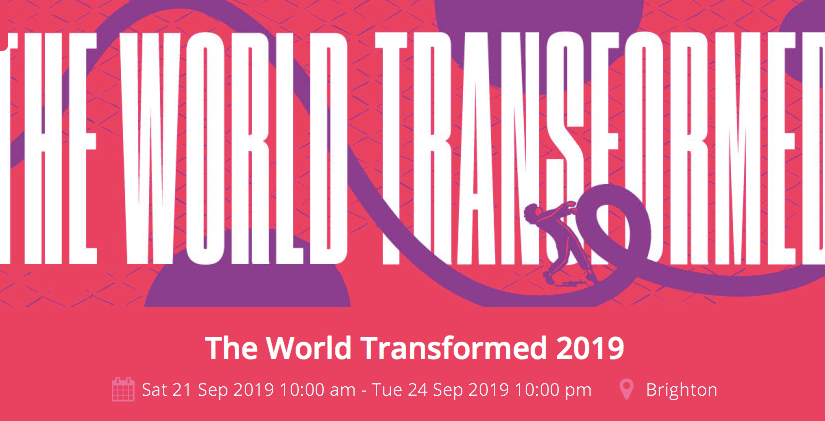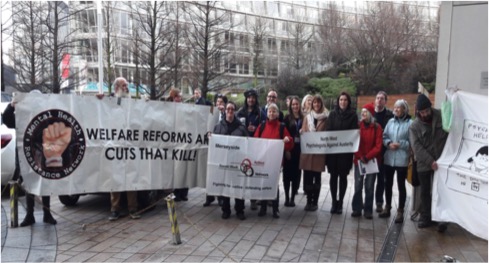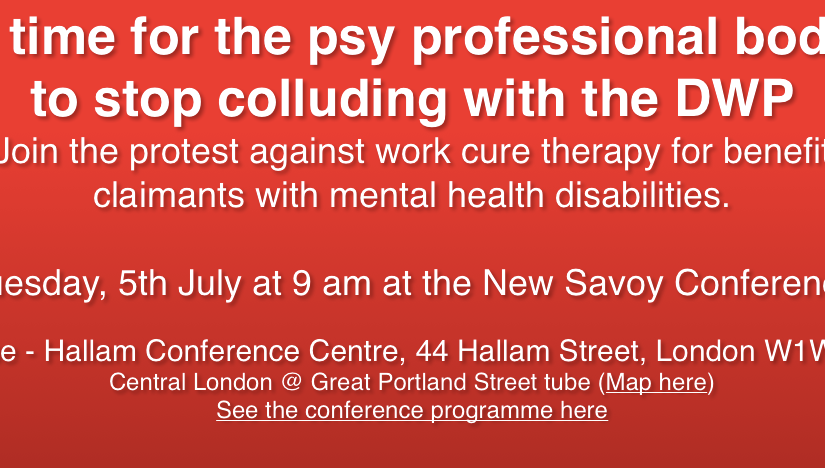This article was written as a response (partly) to an article that came to my attention that was posted on the Common Space website[1] concerning “mental health”[2].
It is laudable that the aforementioned Common Space article and many such similar articles[3] [4]show concern for the “mental health” of our citizens; it is also let us not forget, Mental Health Awareness Week[5].
However I have grave reservations on several issues with this campaign for “mental health” which are routinely overlooked.
Primarily, the discourse of “mental health” or “mental illness” is not all it is cracked up to be. In other words, the biological model of “mental health” is not watertight and it remains to be seen, and most likely will remain firmly remaining to be seen. The evidence of organic substrates attributed to the cause of “mental illness” is nowhere near to that of physical illness. In fact they are incomparable from a scientific point of view; for example see the work of Healy (2003)[6], Joanna Moncrieff (2003)[7], Boyle (2002)[8] , and Kutchins and Kirk (2003)[9].
Secondly, the neuro-cognitive imperialistic discourse of mental disorders is misleading and excludes other discourses of conceptualising mental distress. There are thousands of years of philosophy and numerous other alternative psychotherapeutic and psychoanalytic practices which deal with “mental distress” in rather different ways, which do “work”, but are hardly amenable to the “rigorous” nature of “evidence based medicine”. See the work of the philosopher Martin Heidegger [10] for example and his critique of the positivistic, biologic, and psychological approach to mental distress.
Certain discourses, for example, the Diagnostic and Statistical Manual of Mental Disorders[11] (one of the main dogmas which create the deployment of the concept of mental illness) destroy other ways of conceptualising meaning making regarding mental distress. The symbolic (language) of the DSM discourse is regarded as cast iron; words are taken as entities, these entities are taken as facts, and as a result of the proliferation of DSM diagnoses in the media, the DSM discourse becomes solidified into the symbolic/language of the public. However, such a covering-over and domination of the symbolic prevents one from contributing to the meaning-making of the world. What the systematisers cannot accept is that there may be many meanings or even that there is no final meaning; why is the realisation of a questionable or imperfect symbolic such a terror? Is it such a terror? For many it is a terror; we live in a society where risk prevention is paramount, where avenues of alternative thought and searching for alternative meaning are outlawed, and where the questioning and traversing of ideological borders (e.g., patients questioning the psychological and psychiatric masters’ ideas about the psychological and neurochemical basis of mental disorder) are forbidden and not taught in any of our state educational contexts.
Karl Marx alluded to this situation of alienation[12]. Alienation has certainly occurred in work or labour especially in the 21st century (e.g., McJobs & Zero hours contracts), but also most certainly in our productivity regarding our subjectivities; we have depression, we have OCD, we have ADHD etc. Our products or our productions of our psyches are limited within narrow confines; in other words, we produce or are coerced to produce subjectivities in relation to the dominant congnitve-neuro imperialistic discourse of “mental illness”. As Gilles Deleuze and Felix Guattari (authors of Capitalism and Schizophrenia; Anti-Oedipus[13], and, A Thousand Plateaus[14]) would argue, we have been territorialised by the machines of capitalist discourse to only produce subjectivities which place mental distress within an individual context; the individual is to “blame”, ones faulty cognitions or neurochemistry is to blame and we need experts to fix this. After all the state needs workers who blame themselves, put themselves at the mercy of the psycho-experts to rehabilitate them, but never to question the socio- economic ideology. Yes austerity causes distress, but please do not call it exacerbating existing “mental illness”. That is not the whole story, or an accurate story.
So, while I wholly understand the need and desire to campaign for those in mental distress, we have to be very careful what we demand (As a side issue though, are we all not in some form of distress, especially in Scotland due to the punitive nature of austerity politics? We do after all now have the Tories as the new bosses!). Jacques Lacan, the French psychoanalyst, who had quite a few things to say about the ravages of capitalism, warned about asking the masters (Government) for change. He said beware what you ask for, because all you will get is a new master; here is a harsh lesson for aspiring developing subjectivity and consciousness in light of the glut of campaigning for “mental health” at this poignant time.
The situation in Scotland regarding “mental health” is paradoxically not very healthy, and not likely to get healthy if we continually ask for the limited menu what is on offer.
As Siobhan Tolland (2012)[15] in the Scottish Left Review argues:
“In 2010, the Scottish Government quietly abandoned its commitment to reduce antidepressant use within Scotland. The original commitment came amidst a wave of concern and worry that ten per cent of Scots were taking antidepressants, and the SNP promised to promote alternative treatments. Recommending this abandonment, the Scottish Government Audit Committee suggested that the reduction commitment did not reflect the complexity of treatment options within Scotland. Importantly, it argued, recent research concluded most GPs were prescribing appropriately anyway. Thus concerns over the high use of antidepressants within Scotland were unfounded.”
And she continues:
“At present the mental health strategy, Towards a Mentally Flourishing Scotland is under review, but the abandonment of that commitment is a cause for concern. And abandoning it on the basis of the Aberdeen University research is extremely concerning for it accepts a very controversial view of mental illness that reduces complex emotions to a single biomedical cause. Depression, for instance, is caused by chemical or biological abnormalities of the brain, and should be treated accordingly. Accepting the study’s conclusion that GPs were prescribing appropriately then means they also accept Depression is biomedical in origin. As a consequence, it promotes antidepressant medication above, say, counselling, CBT[16] or even exercise.
The biomedical view additionally prevents any social analysis of unhappiness or desperately low mood, and medicalises these problems. It ignores the correlation between poverty, inequality and poor mental health, for instance. Research suggests that poor mental health is caused by poverty, for instance, with Bristol University suggesting that as many as 50 per cent of people in poverty have signs of depression. Reverting to a biomedical discourse of poor mental health prevents these social and economic connections from being established, citing responsibility on the individual’s biology, and not society. And thus any sense of collective social responsibility for our health and welfare is abandoned. We don’t need to change society to make it more mentally healthy, we just need doctors and scientists manipulate the brain.”
Tolland also highlights the worrying links, associations with pharmaceuticals companies which in part ignores other discourses about mental distress:
“….by 2011 the SNP was openly promising to open NHS Research Scotland up to the pharmaceutical industry. This involved a mission to double the economic contribution of life sciences and accelerate growth with an emphasis on business and institutional collaboration. Promoting health seems pretty absent against this language of business interest. One example of such a promise was a joint partnership with companies carrying out clinical trials which involved streamlining the ‘regulatory approval processes’, meeting the open demands of the ABPI. Since Psychiatry and Neuroscience are proposed areas for NHS Research/industry development, the biomedical influence of mental health and illness seems pretty inevitable.”
But it must be reiterated even the so- called utopia of Cognitive behavioural therapy (CBT) and related technological therapies, even if they were more available, do not address the neuro-cognitive imperialism of mental distress. We are more than cognitions and more than psyches or subjectivities to be “fixed”. David Pavon-Cuellar[17] argues for this case using the work and ideas of Jacques Lacan, the founder of Lacanian psychoanalysis, to bolster his argument.
“Lacan is not a psychologist, but a psychoanalyst. He is a radical psychoanalyst who drastically rejects psychology. This rejection of psychology is constitutive of Lacanian psychoanalysis, which has been aggressively constructed against psychology, especially Ego-psychology and other psychological deviations from psychoanalysis. For Lacan, psychoanalysis must resist psychology. Psychoanalysis must not let itself be absorbed, employed, or contaminated by psychology. In short, psychoanalysis must avoid psychology.
The term “psychology” usually has a negative connotation in Lacanian discourse. Here, as the case may be, psychology implies misinterpretation, misrepresentation, illusion, deception, manipulation, trivialization, and so on. These implications synthesize elaborate Lacanian denunciations of psychology. Among these denunciations, there is one that seems to be directly connected to the position of Marx in Lacan. It is the denunciation of the complicity between psychology and capitalism. This complicity is emphasized in 1965, in the twelfth seminary, when Lacan explicitly maintains that “all modern psychology is made to explain how a human being can behave in the capitalist structure” (Lacan, 1964-1965, 09.06.65). Lacan does not simply say that psychology explains how a human being behaves in the capitalist structure. What Lacan says, is that psychology explains how a human being can behave, or how it is possible for him to behave in the capitalist structure. At stake here is the possibility of human behaviour in the reality of the capitalist structure……Psychology produces wellbeing, comfort, adaptation. It produces adapted workers, or happy workers, that is to say, good workers. But these good workers are also real subjects whose interest proves to be, thanks to Marx, opposed to that which produces them as good workers in order to enable their exploitation. Thus, in the Marxian pole, the workers are essentially “opposed” to the pole of psychology and other “means of production” as “form of existence of capital.
Ultimately, the Lacanian opposition between Marx and psychology expresses the Marxian fundamental conflict between Work and Capital, which can also be lacanianly understood as a conflict between the truth of work and the capital of knowledge. But this conflict is not reducible to an opposition. Capital is not only opposed to Work, but also generated by Work. The truth of work is the truth of capital. It is the truth of the capital of knowledge. Yet knowledge cannot know its truth. It cannot control or manage it, even if it is supposed to control and manage it. Even if the truth should theoretically not resist knowledge, it intrinsically resists knowledge. So the resisting truth appears as a symptom, a hysterical symptom of the irresistible knowledge. It emerges as a real symptom of a purely symbolic system. This symptomatic emergence is just another name for the subversive revelation. Actually, in a Lacanian perspective, we may say that the Marxian revelation of truth is subversive because the revealed truth is a hysterical symptom that has no place in the obsessive normality of Modern knowledge.
The revelation of truth is subversive because it is symptomatic. But there is another reason why the revelation is subversive. It is subversive because the revealed symptomatic truth of enunciation is also the unbearable truth of exploitation, alienation and proletarianization of a real subject completely reduced to the suffering workforce that generates the enunciated symbolic value. This truth is obviously frustrating. It is also comprehensibly revolting. This is also why its revelation may be subversive. The Marxian revelation of the truth is subversive, for example, because it cannot reveal the generation of capital without revealing the revolting situation of exploitation, alienation and proletarianization of those whose workforce generates capital.”
Conclusion:
We have a long way to go, for those of us, all of us, in mental distress, to subvert the master-slave dialectic of the cognitive-neuroscientific imperialistic and alienating discourse of “mental illness”. “Mental illness” is holed up in all the nooks and crannies of the establishment; universities, psychiatry, psychology, pharmaceutical companies, and also in certain psychotherapeutic fashions (e.g., Mindfulness[18]) who want a piece of capital pie. Mental distress is far more than an alert to an illness to be cured by a pharmaceutical straight jacket (i.e., drugs), or a program of thought control (i.e., cognitive behavioural therapy).
As this article is partly inspired by Jean Paul Sartre and in honour of his ideas, it is fitting to leave the last word to him. This is a quote From Sartre[19] to the Socialists Patients Collective[20], a radical Socialist anti-psychiatric movement in Germany.
“Dear Comrades,
I read your book with the greatest interest. In it I found not only the sole possible radicalization of anti-psychiatry, but a coherent practice which aims at replacing the so-called “cures” of mental illness. To put things generally, what Marx called alienation-a general fact in capitalist society – you have given the name illness. It seems to me that you are right. In 1845, Engels wrote in Situation of the Working Class: “[industrialization has created a world in which] a race can only exist once it has been dehumanized, degraded, rendered physically morbid and lowered to a bestial level both intellectually and morally”. As atomizing forces applied themselves to systematically degrading a class of men into sub-men, from the exterior as well as the interior, one can understand how the ensemble of persons of whom Engels spoke has been affected by the “illness”; it can be grasped at one and the same time as an injury that wage-earners are made to suffer, and as a revolt of life against this injury which tends to reduce them to the condition of object. Since 1845 things have changed profoundly, but alienation remains and will remain as long as there is a capitalist system; since it is, as you say, the “condition and result” of economic production.”
Illness, you say, is the only form of life possible in capitalism. The psychiatrist is at once a wage-earner and a sick person like everyone else. The ruling class has simply given him the power to “cure” or intern. Obviously, the cure cannot, in our regime, be the suppression of the illness: it is the capacity to continue producing all the while remaining ill. Thus in our society there are the sane and the cured (two categories of ill persons who are unaware of themselves, and who observe the norms of production) and, on the other hand, the identified “ill persons”– those whose disturbed revolt places them outside the conditions of production and against the wage given the psychiatrist. This policeman begins by outlawing them, in so far as he refuses them their most elementary rights. He is a natural accessory to atomizing forces: he considers individual cases in isolation, as if psychoneurotic disturbances were the characteristic detects of certain subjectivities, their particular destinies. Thus bringing together ill persons who seem to look alike as singular beings, he studies diverse behaviours-which are only effects-and the connection between them, thereby constituting nosological entities that he treats as illnesses and then submits to a classification. The ill person is thus atomized in so far as he is thrown into a particular category (schizophrenic, paranoiac, etc.), in which are found other ill persons with whom he cannot relate socially, since they are all considered as identical exemplars of the same psychoneurosis.”
Bruce Scott
[1] Retrieved from: https://commonspace.scot/articles/1312/mental-health-treatment-three-times-more-likely-among-people-from-deprived-communities-says-new-study
[2] It will hopefully become clear that I am critical of the term “mental health” as I feel that it is conceptually, from a philosophical, medical, psychological, and Socialist perspective, inappropriate.
[3] Retrieved from: http://www.theguardian.com/society/2015/apr/17/hundreds-of-mental-health-experts-issue-rallying-call-against-austerity
[4] Retrieved from: http://www.heraldscotland.com/news/health/leading-psychologists-warn-of-dangers-of-further-austerity-policies.124990661
[5] This article was written the week commencing 11th May 2015 which was mental health awareness week.
[6] Healy, D. (2003). Lines of evidence on the risks of suicide with selective serotonin reuptake inhibitors. Psychotherapy and Psychosomatics, 72, 71-79.
[7] Moncrieff, J. (2003). A comparison of antidepressant trials using active and inert placebos.
International Journal of Medicine, 12, 117-127.
[8] Boyle, M. (2002). Schizophrenia: A scientific delusion? 2nd Edition. Oxford, Routledge.
[9] Kutchins, H., & Kirk, S.T. (2003). Making Us Crazy: DSM – The Psychiatric Bible and the Creation of Mental Disorders. The Free Press, Washington D.C.
[10] Heidegger, M. (2001). Zollikon Seminars. Protocols-conversations-letters. M. Boss (Ed.). Translated by F. Mayer & R. Askay. USA: Northwestern University Press.
[11] Diagnostic and Statistical Manual of mental Disorders: Fifth Edition (2013). American Psychiatric Association.
[12] Marx, K. (1964). Economic and Philosophic Manuscripts of 1884, pp-106-19. International Publishers Co. New York.
[13] Deleuze, G., & Guattari, F. (2004). Anti-Oedipus: Capitalism and schizophrenia. London, Continuum.
[14] Deleuze, G., & Guattari, F. (2004). A thousand plateaus: Capitalism and schizophrenia.London, Continuum.
[15] Tolland, S. (2012). Prozac Nationalism. Scottish Left Review, 70, pp-19-19.
[16] Cognitive behavioural therapy.
[17] Cuellar, D. P. (2011). Marx in Lacan: Proletarian truth in opposition to Capitalist psychology. Annual Review of Critical Psychology, 9, pp70-77.
[18] Mindfulness has become the next big thing in the cure of “mental illness”. It is however, flawed in its ideological constructs, and is consumed by the neo-liberal capitalist project for its own advantage. See: http://www.theguardian.com/healthcare-network/2015/may/14/mindfulness-mental-health-treatment-nhs
Indeed, the philosopher Friedrich Nietzsche warned of this development in western society when he declared that the West would be engulfed in a watered down Buddhism. See Nietzsche, F. (1974). The Gay Science. Translated by Walter Kaufmann. Ontario Canada, Random House.
[19] Jean Paul Sartre quote: Reproduction from The Journal of the British Society for Phenomenology, Vol. 18 No. I, January 1987, pp. 3-5-From the Book; SPK: Turn Illness into a Weapon (The Preface).
[20] From http://en.wikipedia.org/wiki/Socialist_Patients’_Collective: “The Socialist Patients’ Collective (in German: Sozialistisches Patientenkollektiv, and known as the SPK) was a patients’ collective founded in Heidelberg, Germany, in February 1970, by Wolfgang Huber. The kernel of the SPK’s ideological program is summated in the slogan, “Turn illness into a weapon”, which is representative of an ethos that is continually and actively practiced under the new title, Patients’ Front/Socialist Patients’ Collective, PF/SPK(H). The original group, SPK, declared its self-dissolution in July 1971 as a strategic withdrawal.
The SPK assumes that illness exists as an undeniable fact and believe that it is caused by the capitalist system. The SPK promotes illness as the protest against capitalism and considers illness as the foundation on which to create the human species. The SPK is opposed to doctors, considering them to be the ruling class of capitalism and responsible for poisoning the human species. The most widely recognized text of the PF/SPK(H) is the communique, SPK – Turn illness into a weapon, which has prefaces by both the founder of the SPK, Wolfgang Huber, and Jean-Paul Sartre.”













